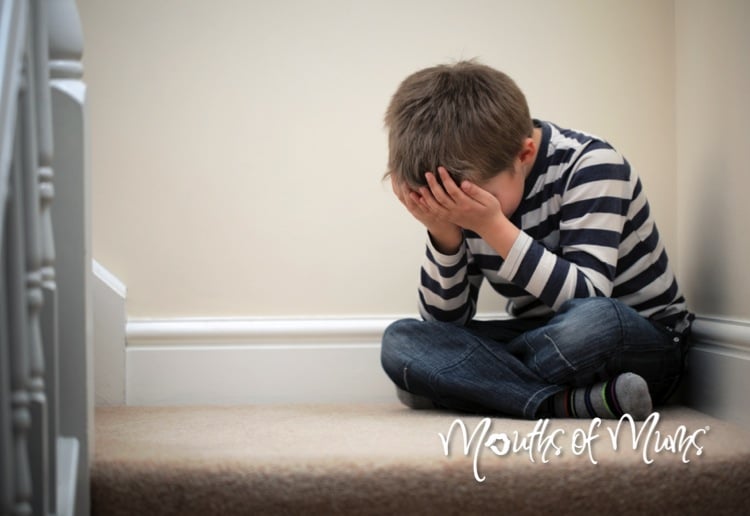It is important to acknowledge when your children are not coping and to offer tools to support them. There are tools to help with children’s stress and anxiety.
Approaches to keep your children as stress free as possible are outlined below to support you.
Firstly be aware of and recognise these six signs of stress and anxiety in children:
- Tears for seemingly minor reasons.
- Nervous behaviours such as nail biting and hair twirling.
- Physical complaints, such as stomach aches, headaches, fatigue, etc.
- Regression to younger behaviours; bed wetting, eating with hands.
- Withdrawal from school friends or siblings.
- Any behaviour that your child doesn’t normally do could be a sign of anxiety.
My top eight suggested stress management tips for children are:
- Take the pressure and expectations off children if they are feeling uncomfortable. Helping children cope with stress involves knowing their personalities and limits. Listen to and acknowledge how they are feeling and give them time and space with it.
- Stick with the routine as much as possible.
- Ask your children what makes them feel better. Do they wind down with music, reading, spending time with you, or playing with their friends, brothers, or sisters? Encourage them to do what helps them calm down and relax.
- Make sure your children eat nutritious foods, drink lots of water, and get exercise. Reducing children’s physical stress looks similar to minimising your own anxiety.
- Have tokens of support for your child. For example something little that Dad or Mum gives the child to have while they are away that is filled with magical happy energy that passes to them when they hold it. It could be anything, a rock, a photo, a small toy. My youngest son slept with an old ID card under his pillow that my husband had given him, for about six months. He said it made him feel close to Daddy. One dad I spoke to set fun challenges for his boys to focus on and achieve while he was working away. He followed up on them during phone and Skype calls.
- Have strategies in place to cope with your own stress. The less stress you feel, the more relaxed your children will be.
- Find ways to be involved in your community. Volunteering and contributing relieves feelings of stress and isolation. It is something that the whole family can be involved in and you will meet some lovely people. Your children will feel a sense of belonging and purpose, and so will you.
- Lighten the mood with fun activities; comedy movies, park afternoons, and cosy chats with hot chocolate or ice cream treats, going out, staying in, and laughing.
I have found that one of the most effective ways to reduce stress in the home is to foster a team environment and share how you are feeling in a positive way and how you cope in age-appropriate language. This will encourage everyone to talk about his or her feelings more, no judgment, no direction, just sharing and off loading the emotional burden that can build up.
When children have the opportunity to discuss the realities of life as they see it, they are developing understandings about choices and consequences and can begin to develop habits, resilience and skills that will enable them to make informed decisions about their own resources in the future.
While adults don’t need to share information about all our decisions with children, when we limit what they are allowed to talk about we deny them the opportunity to understand some of the choices we have made that directly impact upon their daily lives.
Everyone is doing the best they can with the choices they have made and children need to know this applies to the adults in their lives as well. How could we provide more opportunities to discuss our life choices with children?
Listening to children, and responding age appropriately, is sometimes hard. It requires time and patience but the insights gained are usually worth the effort. Considering what they have to say means that we can also consider what else they need and have a better chance to reduce the stressors in their lives.
If you were to pick 3 de-stressing techniques from the information above that you could start using now to support your stress-free household, what would they be? Please share your thoughts in the comments below.
Image courtesy of Shutterstock.com




















-

-
-
meedee said
- 08 Jul 2021
-

-
-
mom134803 said
- 13 Jul 2016
-

-
-
ella12 said
- 27 Jun 2016
-

-
-
mom101628 said
- 24 Jun 2016
-

-
-
mom189285 said
- 14 Jun 2016
-

-
-
rachelvk said
- 28 May 2016
-

-
-
june11 said
- 27 May 2016
-

-
-
Nas01 said
- 27 May 2016
-

-
-
mom90758 said
- 27 May 2016
-

-
-
mom81879 said
- 27 May 2016
-

-
-
mom160421 said
- 27 May 2016
Post a comment12:56 pm
4:12 am
4:33 pm
10:52 pm
4:28 am
-

-
-
mom112270 replied
- 16 Jun 2016 , 12:52 pm
Reply7:56 pm
6:00 pm
4:06 pm
2:48 pm
1:38 pm
12:23 pm
To post a review/comment please join us or login so we can allocate your points.